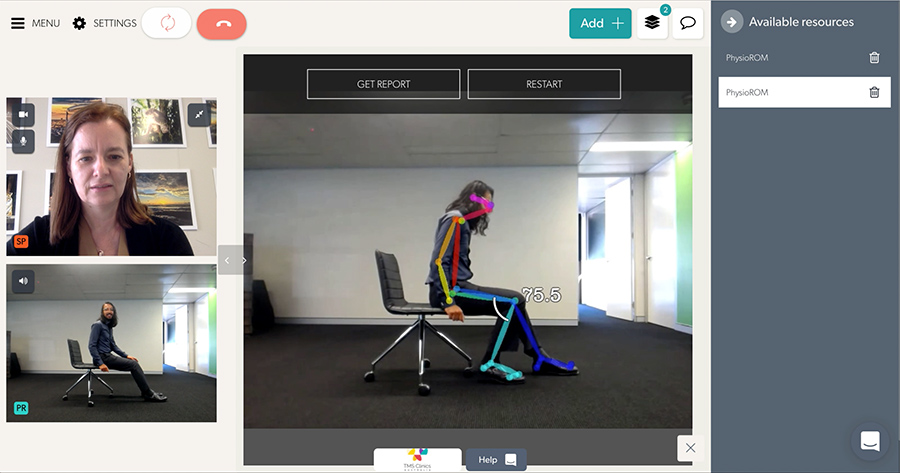We use cookies to give you a better experience on our website. Learn more about how we use cookies and how you can select your preferences.
CRC Projects – taking the financial pain out of knee replacements

The AI-based solution automatically recognises a knee joint’s range of motion.
New telehealth technology being developed by Australian researchers is set to help more patients undertake knee replacement rehabilitation at home, leading to fewer hospital stays and saving Australia’s healthcare system up to $140 million per year.
The project will develop rehabilitation-by-video services which track patient improvement based on robust, objective data, thanks to a $1.2 million CRC-P grant. Project partners are contributing a further $1.7 million.
Coviu is collaborating with researchers from CSIRO and the University of Western Australia, together with the Trustee for the HFRC Trust (HFRC), an allied health clinic with extensive experience in joint replacement rehabilitation. The project is set to deliver an industry first solution that will lower rehabilitation times and keep more patients at home, saving them money and reducing hospital readmission rates.
“At Coviu, our goal is to make healthcare services easily accessible and usable for all Australians, and this grant takes us a large step closer towards achieving this.”
The project, due to end in mid-2021, will produce AI-based solutions to automatically recognise a knee joint’s range of motion. This will allow clinicians to remotely monitor and measure the patient’s recovery via a video interface.
While initially focused on knee replacement rehabilitation, the technology developed by this CRC-P will also be applicable to other joints and physiotherapy interventions, offering further commercialisation opportunities and overall cost savings for the health system.
-
Find out more about Coviu on their website:
www.coviu.com
Further information
-
Cooperative Research Centres Projects (CRCP) grants
Cooperative Research Centres Projects (CRCP) Grants